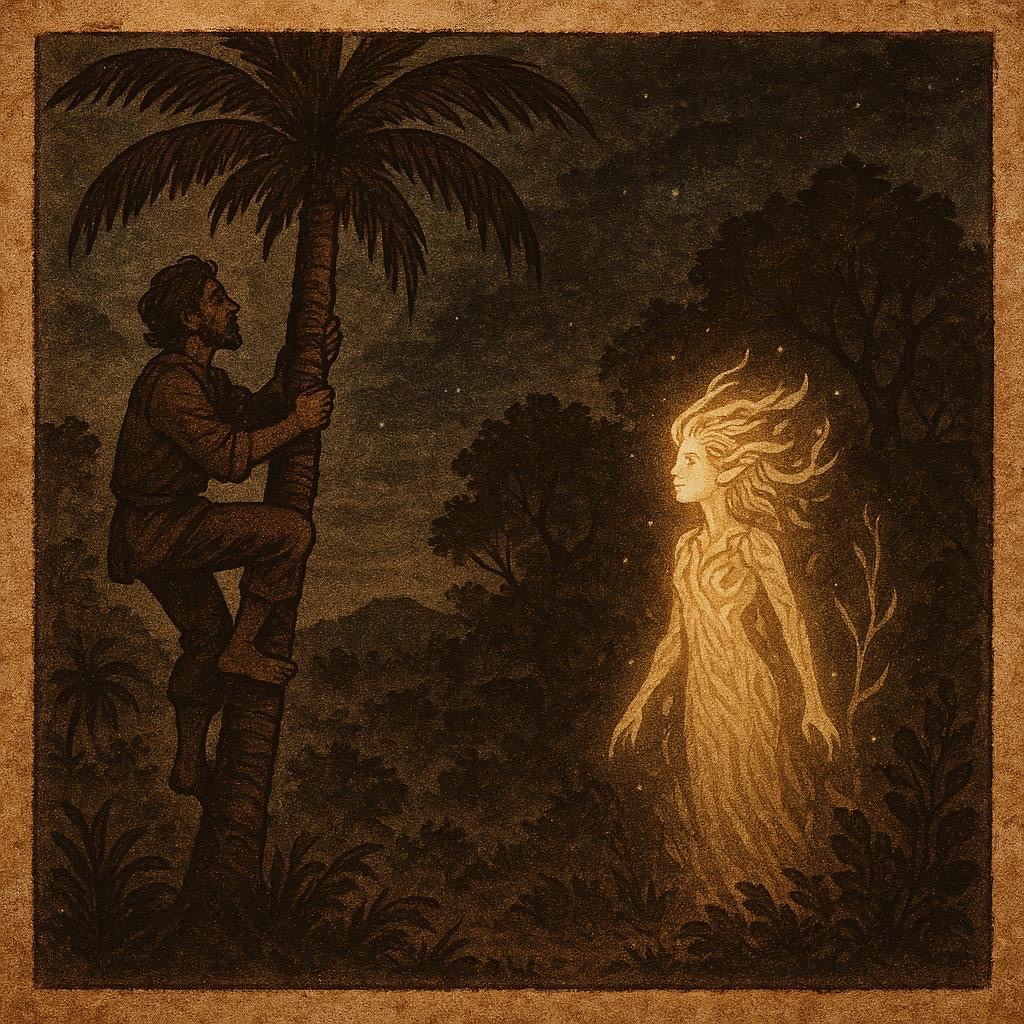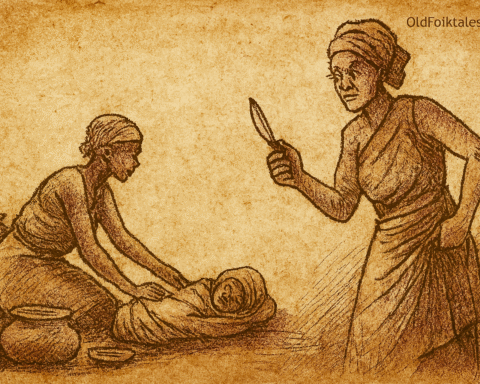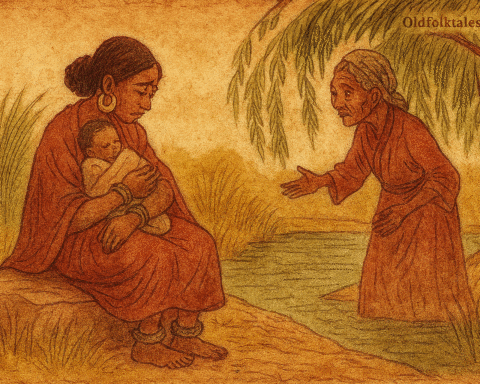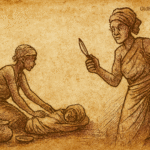Hear this tale, for it has been carried by the wind of ages. In a small Igbo village, there once lived a humble palm wine tapper named Obinna. Each morning, before the cock crowed, he walked into the forest with his rope and calabash to climb the tall palm trees. His life was not filled with riches, yet he had contentment in his heart and joy in his labor.
One day, Obinna went deeper into the forest than usual. The palm trees there were said to belong to the spirits, so few dared to tap them. Yet the sight of the trees heavy with sweet sap tempted him. With respect in his heart, he offered a small prayer to the forest and began his climb.
As he tapped the first tree, a voice rose from the shadows. “Mortal, why do you touch the palms of the forest god?” Obinna almost fell in fear. From the thick mist appeared a tall being with glowing eyes, the Forest God himself. His presence was mighty, yet not cruel.
“Great one,” Obinna said, trembling, “I came only to collect wine for my people. If I have offended you, forgive me.”
The Forest God looked deep into his eyes. “I will not strike you, Obinna. Instead, I shall test your heart. If you prove honest, you shall leave with blessings. If you prove false, you shall regret your words.”
The god waved his hand, and before Obinna appeared three calabashes filled with palm wine. The first glowed with golden light, the second shimmered like silver water, and the third looked plain and ordinary.
“Tell me truthfully,” the Forest God commanded, “which of these calabashes did you truly tap from the tree?”
Obinna looked at the glowing ones. He knew that with the golden wine he could become wealthy beyond measure, and with the silver wine he could gain honor among men. But he also knew that neither had come from his tapping. With a deep breath, he bowed and said, “Great one, only the plain calabash came from my tree. The others are not mine to claim.”
At his words, the forest grew quiet, and the spirits in the shadows whispered. The Forest God’s stern face softened, and he let out a laugh that shook the branches. “You have spoken truth when greed could have blinded you. For this, Obinna, you shall be rewarded.”
The god touched the plain calabash, and suddenly it overflowed with wine that never ran dry. No matter how much Obinna poured, it filled itself again.
“Take this gift,” the Forest God said. “As long as you live honestly, your household shall never lack. But remember, should falsehood ever rule your heart, this gift will turn to dust.”
Obinna returned to his village with the miraculous calabash. His family drank, his neighbors drank, and travelers were welcomed with fresh palm wine. The village rejoiced, for no one went thirsty again. Yet Obinna never bragged about his gift. He always told the people, “It is honesty that brings reward, not deceit.”
As years passed, Obinna became known not only as the greatest tapper but also as the man of truth. Children were taught his story so that they too would learn the value of honesty.
And so the tale tells us that wealth and blessings come not from greed but from a truthful heart.
Moral Lesson of The Palm Wine Tapper and the Forest God
This story teaches that honesty is greater than greed. Obinna had the chance to lie and claim what was not his, yet he chose the truth. Because of this, he received a blessing that served his whole community. The folktale reminds us that truth brings reward, while deceit leads to loss.
Knowledge Check on The Palm Wine Tapper and the Forest God
Who was Obinna in the folktale?
Obinna was a humble palm wine tapper from an Igbo village.Where did Obinna go to tap wine that led to his encounter with the spirit?
He went deep into the sacred forest, where the palms were said to belong to the Forest God.What challenge did the Forest God present to Obinna?
The god showed him three calabashes of wine and asked him to truthfully identify which one he had tapped.How did Obinna prove his honesty?
He chose the plain calabash and admitted that the glowing ones were not his.What reward did Obinna receive from the Forest God?
He received a self-filling calabash that overflowed with endless palm wine.What is the main lesson of this folktale?
The lesson is that truth brings reward and blessings, while dishonesty leads to downfall.Cultural Origin: This folktale comes from the Igbo people of southeastern Nigeria, whose oral traditions often teach values of honesty, respect, and community harmony.




